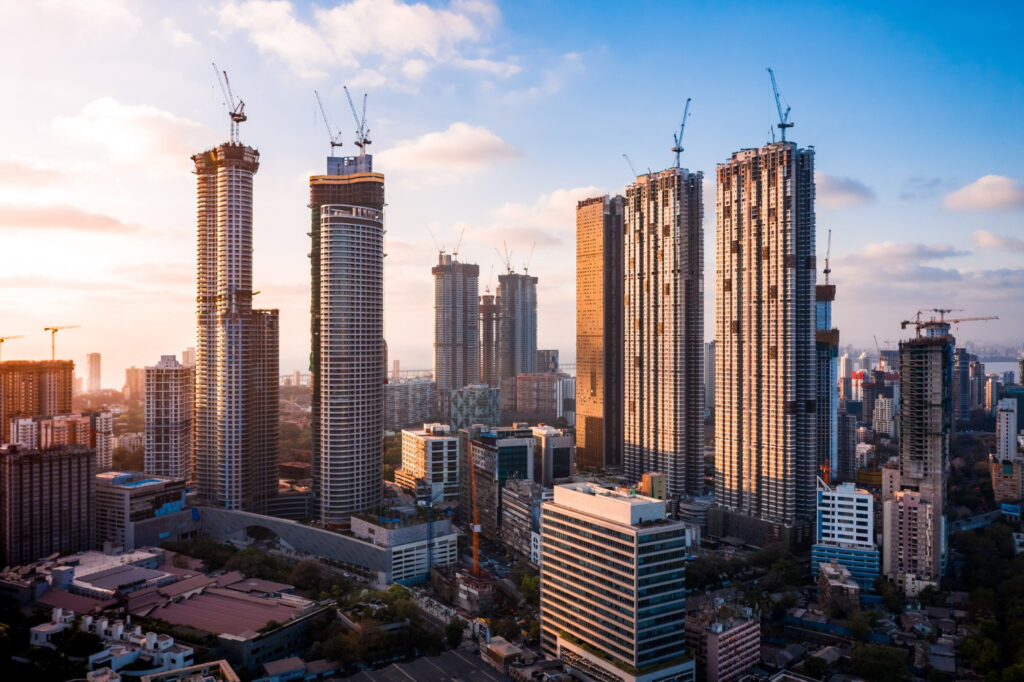Real estate is more than just buying and selling property—it’s a cornerstone of economic growth, personal wealth, and societal development. In India, this sector contributes 7% to the GDP and employs over 50 million people. Whether you’re a first-time buyer, investor, or simply curious, this guide breaks down the fundamentals of real estate in simple terms, with actionable insights for navigating India’s dynamic market, including a special focus on West Bengal.

What is Real Estate?
Real estate refers to land and any permanent structures attached to it, such as buildings, roads, or natural resources like water and minerals. Ownership grants rights to use, sell, or lease the property.
Key Characteristics of Real Estate
- Immobility: Land cannot be moved, making location a critical factor.
- Durability: Buildings have long lifespans, but require maintenance.
- Scarcity: Limited supply in prime areas drives value (e.g., Mumbai’s Bandra).
- Heterogeneity: No two properties are identical due to location, design, or legal status.
Types of Real Estate
India’s real estate market is categorized into five main types:
1. Residential Real Estate - Examples: Apartments, villas, townhouses, and plotted developments.
- Trend: Demand for affordable housing surged post-pandemic, with Kolkata witnessing a 79% rise in residential registrations in 2021.
2. Commercial Real Estate
- Examples: Office spaces, malls, hotels.
- Growth Driver: IT hubs in cities like Bengaluru and Hyderabad.
3. Industrial Real Estate
- Examples: Warehouses, factories, logistics parks.
- Hotspot: Delhi-Mumbai Industrial Corridor.
4.Agricultural Land
- Regulation: Foreign nationals cannot own agricultural land in India.
- Special Purpose Real Estate
- Examples: Schools, hospitals, religious buildings.
5. Real Estate Ownership in India
Freehold vs. Leasehold
- Freehold: Full ownership of land and structures (common in residential properties).
- Leasehold: Temporary rights (e.g., 99-year leases for government land).
1. Legal Framework
- RERA (Real Estate Regulatory Authority): Mandates project registration, escrow accounts, and timely delivery to protect buyers.
- Stamp Duty & Registration: Varies by state. In West Bengal, stamp duty is 6–7% for properties in Kolkata.
Key Documents
- Sale Deed: Proof of ownership transfer.
- Encumbrance Certificate: Confirms no legal disputes.
How to Measure Land in India
India uses diverse regional units, which can confuse buyers:
- Acre: 43,560 sq ft (common in North India).
- Hectare: 2.47 acres (used for agricultural land).
- Cent: 435.6 sq ft (popular in Tamil Nadu).
- Bigha: Varies by state (e.g., 27,225 sq ft in Uttar Pradesh)8.
Example: A 1,000 sq yd plot in Kolkata equals 9,000 sq ft or ~0.2 acres.

Investment Strategies in Indian Real Estat
The Four Pillars of Real Estate Investing
- Appreciation: Long-term value growth (e.g., Kolkata’s New Town saw 40% price hikes due to metro connectivity).
- Cash Flow: Rental income after expenses.
- Equity Build-Up: Tenants pay your mortgage over time.
- Tax Benefits: Deductions for home loans, depreciation, and maintenance.
Popular Strategies
- Buy-and-Hold: Ideal for beginners; generates steady rental income.
- Flipping: High-risk, high-reward (requires market expertise).
- REITs: Invest in Real Estate Investment Trusts for passive income (dividend yields: 10–15%).
West Bengal Real Estate Spotlight - Kolkata’s Growth Drivers
- Infrastructure: Metro expansion, New Town IT hub, and the Kolkata Airport.
- Affordability: Average property prices 30% lower than Mumbai.
- Government Incentives: Stamp duty cuts (2%) and circle rate reductions boosted sales by 79% in 2021.
Top Investment Areas
- New Town: Planned IT hub with premium residential projects.
- Rajarhat: Emerging as a luxury hotspot.
- Behala: Affordable housing with industrial job opportunities.
Legal Tips for West Bengal Buyers
- Verify builders on the WBHIRA portal (West Bengal’s RERA).
- Registration charges: 1% of property value.
Future Trends Shaping Indian Real Estate
- Smart Cities: Govt’s ₹7,060 crore plan for 100 smart cities.
- Co-Living/Co-Working: Popular among millennials in Bengaluru and Pune.
- Green Buildings: Energy-efficient designs reduce costs by 20–30%.
Common Mistakes to Avoid
- Skipping title verification (leads to legal disputes).
- Ignoring RERA compliance (risk of delayed possession).
- Overlooking hidden costs like maintenance fees.
Conclusion
Real estate is a powerful tool for wealth creation, but success requires understanding market dynamics, legal nuances, and regional trends. In West Bengal, cities like Kolkata offer high growth potential due to infrastructure upgrades and affordability. Always consult experts, prioritize RERA-approved projects, and diversify your portfolio with a mix of residential and REIT investments.
